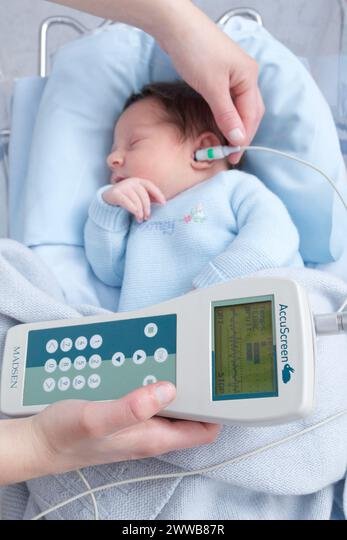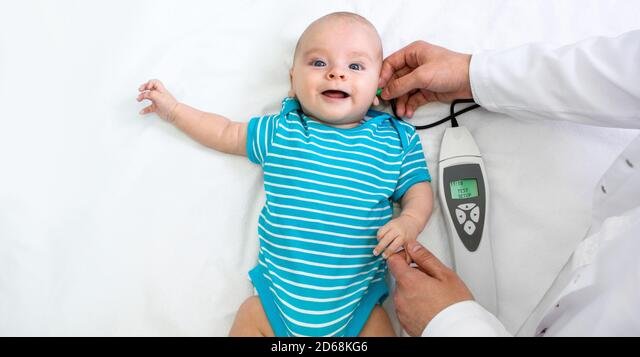Gerry Doot is a dedicated homebirth dad of two, bringing his passion for family and community into every aspect of his life. With 20 years of experience in music and teaching drums and guitar, he has inspired countless students through his creative and patient approach to education. Now embarking on a new career as a newborn hearing screen specialist, Gerry combines his love for children with his commitment to early childhood development and healthcare. His journey reflects a deep appreciation for learning, service, and the well-being of growing families.
“We loved our experience with Gerry. He was informative, gentle, patient, and made us feel so at ease. His communication was great. It was such a quick and easy process and we got to be in the comfort of our own home. Highly recommend this incredible service!” - Rebecca M
Importance of Infant Hearing Screenings
Infant hearing screenings are crucial for early detection of hearing loss, allowing for timely intervention that can significantly improve language, social, and cognitive development. Since newborns rely on sound to begin learning communication skills, undetected hearing issues can lead to delays in speech and learning. Early diagnosis enables parents and healthcare providers to explore treatment options, such as hearing aids or speech therapy, to support the child’s development. By identifying hearing concerns within the first few months of life, these screenings help ensure that every child has the best possible start in communication and learning.
In-Home Screenings
Why Screen At Home
Having an infant hearing screener come to your home provides a comfortable and stress-free environment for both the baby and parents. It eliminates the need for travel, reducing exposure to germs and allowing for a more convenient scheduling process. A home screening also ensures a quieter setting, which can lead to more accurate results compared to a busy clinic. This personalized service also gives parents the opportunity to ask questions and receive immediate guidance in a relaxed setting.
When to Screen
Parents should have their baby’s hearing screened as early as possible, ideally within the first month of life. If the initial screening is inconclusive or if risk factors for hearing loss are present, follow-up testing should be completed by three months of age. Early detection is crucial because babies begin developing speech and language skills from birth, and undiagnosed hearing loss can lead to delays. If any concerns arise later, such as lack of response to sounds or delayed speech development, parents should seek additional screening right away.
There are two common types of newborn hearing screenings: Automated Auditory Brainstem Response (AABR) and Otoacoustic Emissions (OAE). AABR measures how the hearing nerve and brain respond to sound using small electrodes placed on the baby’s head, making it ideal for detecting hearing loss related to the auditory nerve and brain pathways. OAE, on the other hand, measures sound waves produced by the inner ear in response to a stimulus, using a tiny probe placed in the baby’s ear canal.
How Screenings Are Done
Both tests are quick, painless, and can be done while the baby is asleep, helping to identify potential hearing issues early for timely intervention. The test will produce one of two results, Pass or Refer. A Pass result means that a response has been detected and the baby’s hearing is healthy and normal. A Refer result does not necessarily mean that the baby cannot hear, it can result from several variables including too much room noise or a wiggly baby. If a Refer result is given the parents will be sent to an audiologist for further testing and options.
FAQ
-
Language Milestones
-
Pricing is $250 for an in-home visit. This includes the test itself and a certificate either confirming your baby’s ability to hear normally or a referral to see a pediatric audiologist, all in the comfort of your own home.





